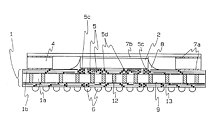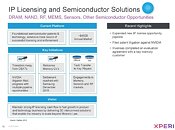
Western Digital Faces $553M Patent Bill Days Before Company Split
The Register reports that a federal judge has rejected Western Digital's attempt to delay payment of a $553 million patent infringement penalty, giving the storage giant just seven days to secure a bond or pay up. The ruling, issued February 11, comes as Western Digital faces mounting pressure over intellectual property disputes. To be more specific it's about SPEX Technologies' Patent No. 6,088,802, which protects security features in peripheral devices. In October 2023, a California jury ruled that several WD products, including Ultrastar and My Book drives infringed on this 1997 patent. Judge James Selna later expanded the initial $316 million verdict to include $237 million in interest charges.
Western Digital's upcoming corporate restructuring complicates the situation. The company plans to split into two separate entities by February 21—one to focus on NAND flash memory under the SanDisk brand and another to maintain the traditional hard drive business. This pending division has raised questions about how to enforce the damages, with Judge Selna mentioning his "concerns about potential corporate restructuring" because the judgment targets Western Digital Technologies Inc. SPEX has voiced concerns about the company split pointing out in legal papers their lack of insight into which new entity would pay the penalty or if either would have enough money to cover the owed amount.
Western Digital's upcoming corporate restructuring complicates the situation. The company plans to split into two separate entities by February 21—one to focus on NAND flash memory under the SanDisk brand and another to maintain the traditional hard drive business. This pending division has raised questions about how to enforce the damages, with Judge Selna mentioning his "concerns about potential corporate restructuring" because the judgment targets Western Digital Technologies Inc. SPEX has voiced concerns about the company split pointing out in legal papers their lack of insight into which new entity would pay the penalty or if either would have enough money to cover the owed amount.

















